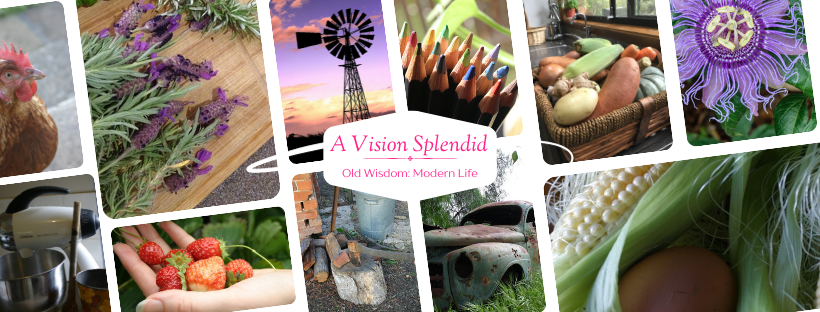
I have now returned home after going out to Dubbo in western New South Wales to visit my grandmother once again. While I was out there I had the opportunity to visit the Outback House. Ever since the series was shown on ABC a couple of years ago I have been wanting to visit the area, but it is privately owned and was only opened on long weekends and special occasions.
The television series depicted participants from modern day heading back in time to a working homestead in 1861. The property, named "Oxley Downs" was 'built' as a replica of the homesteads of the day. You can see more about the series here I was really drawn to the series because it is very close to where my grandparents built a homestead in the 1930s.
What struck me straight away was the self sufficiency of life. Exactly how my grandmother had described to me. They raised and killed their own meat and grew all their own fruit and veg. My grandmother also grew wheat and took it to the mill to swap for bags of flour.
The homestead was so simple yet so beautiful. It had a hallway that went straight through the building with rooms off to each side. First door on the left was the dining room which doubled as the classroom and office.

The first door on the right was the parlour which has comfortable chairs and small tables and a piano.

The last two rooms were the bedrooms.

I was so intrigued by the kitchen. So primitive, yet highly functional with a separate storage room or larder. 

The garden was a huge area that really grew everything, all in together. It was magnificent. There were no neat little rows, it was more a permaculture style. The owners told me to take what I wanted and although I wanted to dive in with a wheelbarrow, I respectfully took a few things that I thought I would be able to continue the heirloom breeds from by saving the seeds.

What really struck me was that in comparison they did it so tough, although they knew no different. They baked and made EVERYTHING. They grew EVERYTHING.
When I arrived home I went to make some rock cakes and suddenly realised how lucky I am. I have refrigeration. I can freeze my vegetables and meat, I have a microwave if I want the butter to melt faster, I have an electric oven. So a more self sufficient lifestyle would be so EASY in comparison. It is so easy to bake bread, make pasta, make jam. Yet..... it seems that we have been tricked into a consumerist lifestyle where even baking a chicken is too much work when it is far more "convenient" to get a pre-cooked chook from the supermarket!
So, my perspective has certainly changed......... I rose early this morning and made strawberry jam. I then had it on a slice of home baked bread from the bread maker, toasted in my electric toaster and I had a cup of tea boiled in my electric jug. Being more self sufficient is suddenly so easy is comparison.

I sat and thought joyful thoughts......












